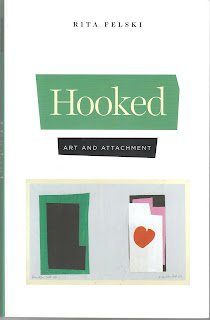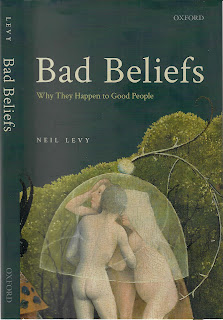Ten years ago I reviewed David Graeber’s Debt on this site and declared it my
Book of the Year, though that is a fact I had forgotten until I accessed what I
had written:
https://www.readingthisbook.com/search?q=david+graeber
The book now under
review, jointly authored with the archaeologist David Wengrow, was completed a
few weeks before David Graeber’s sudden-onset illness and unexpected death in
2020. Like the earlier book it is enormously wide-ranging, disruptive of
settled notions, and engagingly written. I was impressed and greatly enjoyed it.
A thumbnail will not do it justice so I will
not struggle to find the most apt one. It seeks to re-fashion how we think about
both the very distant past with which the archaeologist is concerned and the
scattered “left-over” presents which are the concern of cultural anthropologists.
Specifically, it tries to escape from the clutch of all those (teleological) approaches
which assume that their job must be to explain how we got from there to here.
At the same time, it suggests that despite lack of written evidence we should
not assume that pre-historic or tribal cultures were incapable of thinking
about the arrangements under which they lived and making use of that in
configuring and changing them. At a level of more detail, instead of going in search of “state
formation” starting from our current situation in which the world is carved up
into nation states we could usefully look at how at different times and places
three principles of domination are exercised, either alone or in combination: “call
them control of violence, control of information, and individual charisma”
(page 365). This opens up a field normally dominated by thinking about monopoly
of force or private property rights and allows us to see past societies and
marginal societies in all their difference. The professors will soon tell us if
they think this is or isn’t an insightful way of developing a new approach within
social and political theory.
I offer only two small
comments. The authors make much of the fact that pre-historic and tribal
societies quite often live under different forms of government at different
times of year. In the hunting season, everyone may submit to a single leader
whose word is law; but in the off-season when people settle (back) into
village-like life, everyone may prove very reluctant to submit to anyone else
and indeed decision-making may be quite differently organised in terms of communal
discussion aimed at consensus. The mere fact of this seasonal difference opens
space for local reflection on which system is “best”. The authors seem to think
that this will come as a surprise to readers. But most of them will have had
recent experience of COVID lock-downs, some will have had experience of Martial
Law, and in my country many will know about the Emergency Powers which in World
War Two underpinned such things as the compulsory night-time blackout. In all
these cases, people don’t move around geographically but the rules under which
they live have been temporarily, but quite dramatically, changed. Except in the
case of Martial Law, compliance may depend a lot on the sense that “We’re all
in it together” as Britain’s former Prime Minister Mr Boris Johnson discovered
to his cost. He let it be discovered that in his view COVID rules were only for
the little people.
As a second comment,
the authors frequently use concepts of culture,
civilisation, state and society but I
miss civil society. Civil society is something
which is outside the private sphere of the family unit but also outside the
state and its bureaucracy. It is larger than what Habermas and others would
call the public sphere construed as a
place for public debate and would include things like food banks which are
created by the voluntary efforts of (private) citizens. The scale of civil
society is variable - totalitarian regimes are deeply suspicious of it as a
site of potential opposition and will seek to incorporate most of its elements
into bureaucratically controlled state or quasi-state activities. In countries
like my own there is also perhaps an interesting question about its boundaries.
For example, food supermarkets might be located simply in the domain of capitalist
enterprises, driven by the aim of profit maximisation and so on. But for
whatever motives they do have aspects which link them to civil society: they
give away food which might go to waste; they stock shelves with “Value” and “Essential”
products which are cheaper and which increase in importance in periods of
inflation and recession; they articulate discontent with government - in my
country the Chairman of Tesco, a major supermarket chain, recently let it be
known that he despaired of the Conservative (and supposedly business-oriented) government and was looking forward to a new (Labour) one. I don’t want to be
starry-eyed but I do think there is something to look at there a bit more
closely. There is of course an enormous amount of guff pushed out about “socially
responsible business” but maybe it does a bit more than blur the line between ”the
Economy” and “Society”. I'm tempted to say that often enough it is civil society which mitigates the mistakes and oppression of nation state governments.









